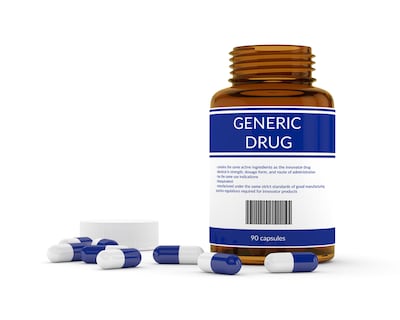User Fees
As the FDA sees another quarter with a net loss of employees in CDER and CBER, Pink Sheet editors discuss the potential impact and where it could manifest.
The FDA proposed allowing sponsors that use domestic API suppliers and finished dosage form manufacturing and conduct BE testing in the US to receive a shorter ANDA review.
CDER and CBER added more people in the first quarter of FY 2026 than the previous two quarters combined, but departures still outnumbered the additions.
The FDA wants to waive facility fees for three years if a sponsor breaks ground on a US-based manufacturing plant, but industry is concerned the idea will force other sponsors to subsidize competition.
The FDA does not like the idea, in part because estimating annual revenue likely would be tougher.
Sponsors also want efficacy supplement action packages released after redaction as part of a proposal to increase first-cycle approvals.
FDA officials want to charge the generic drug program fee per ANDA owned going forward, rather than the current practice of separating firms into different fee-paying tiers based on the number of ANDAs owned.
No sponsors have been accepted into the Split Real-Time Application Review pilot program and its extension beyond 2027 appears unlikely.
The agency indicated during prescription drug user fee reauthorization discussions about performance metrics that 20% of reviewers were lost last year.
More complete response letters were issued than approvals for novel neuroscience candidates in 2025. Orphan neurology therapies were hit the hardest.
The FDA wants PDUFA to have the same flexible spending trigger threshold as the BsUFA program, but industry prefers a tighter mandate.
The FDA wants to extend the goal date for some applications with facilities that receive a pOAI classification to allow more first-cycle approvals.
The FDA outlined its plans for “Sentinel 3.0,” including a data hub that would speed queries, during PDUFA VIII negotiations as industry questions whether user fee revenue should continue funding the program.
A Teva official suggested the increasing reliance on analytical characterizations rather than clinical studies to show biosimilarity should warrant user fee structure changes.
Industry representatives raised several concerns about an FDA proposal to charge additional fees to sponsors not conducting Phase I trials in the US, including that the idea could increase the burden of drug development overall.
The agency wants to ensure orphan drug sponsors cannot benefit from fee exemptions while gaining approval of non-orphan indications.
Non-malignant hematology, respiratory and cardiometabolic candidates make up for an unusual lack of oncology products on the US FDA’s December user fee goal calendar.
The FDA wants to charge a yearly fee after an IND is filed for firms that do not conduct Phase I clinical studies in the US as part of its proposal to encourage more domestic development.
The FDA told the Pink Sheet an ANDA managed to be submitted during a period when no new ANDAs could be accepted.
ANDA sponsors received 20 days to pay fees associated with applications submitted during the government shutdown, while NDA and BLA sponsors only received five days.




















